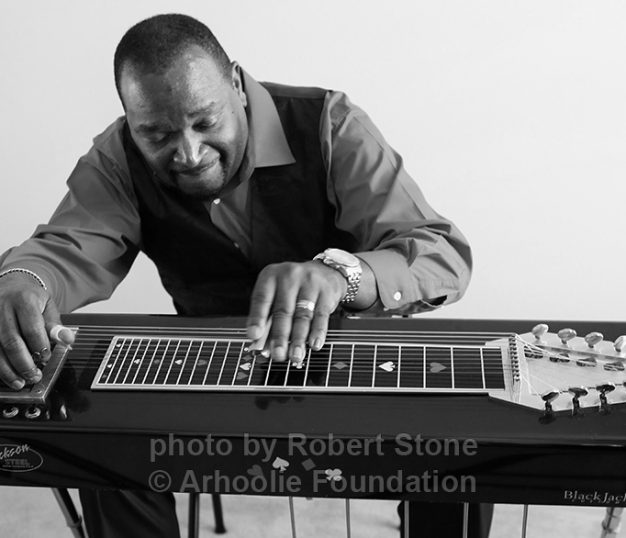Charles Flenory: Legacy, Music, and Fictional Portrayal in BMF?

The name Charles Flenory carries significance across two very different domains: real-life gospel music history and popular television culture. On one hand, Charles Flenory was a respected Sacred Steel musician, songwriter, and recording studio innovator, remembered for his dedication to gospel music and his creative contributions to the church and recording industry. On the other hand, the name gained renewed attention in recent years through the hit Starz series BMF (Black Mafia Family), where actor Russell Hornsby portrays a fictionalized version of Charles Flenory as the moral and religious father of Demetrius “Meech” and Terry Flenory.
This article explores the life and legacy of the real Charles Flenory, his contributions to music, and how his name resonates in mainstream culture today. Whether you are a fan of gospel history or interested in the portrayal of family dynamics in BMF, understanding Charles Flenory offers a unique look at music, morality, and legacy.
Early Life and Background of Charles Flenory
Charles Flenory was born on March 18, 1948, in Cleveland, Ohio, to Bishop George T. Flenory and Mary Francis Flenory (née Gates). Growing up in a deeply religious household, Charles was immersed in the House of God, Keith Dominion Church, where music played an integral role in worship.
- By the age of five, Charles had already begun playing guitar.
- At thirteen, he transitioned to the steel guitar, an instrument that would define his musical journey.
- His style and influences were shaped by a mix of gospel traditions and country pedal-steel greats such as Lloyd Green, as well as early Sacred Steel icons like Calvin Cooke and Bishop Ronnie P. Hall.
This strong foundation in faith and music would lead him into a lifetime of innovation and contribution to gospel music culture.
Charles Flenory and the Sacred Steel Tradition
The Sacred Steel movement is a form of gospel music rooted in the House of God churches. It replaced traditional church organs with the steel guitar, creating a powerful, emotional, and uniquely American sound. Charles Flenory quickly rose as one of its notable figures.
Musical Contributions
- Songwriting and Arranging: Charles is credited with writing and arranging songs such as Jump for Joy, performed by The Campbell Brothers, one of the most famous Sacred Steel groups.
- Gospel Sounds Record Corporation (1963): At a young age, Charles founded this label, learning from engineers who had worked at Motown Records. This connection to Detroit’s booming music scene helped shape his understanding of recording and production.
- Education: He graduated from the Recording Institute of Detroit in 1977, further refining his skills as a studio engineer and producer.
Studio Work and Awards
- Charles designed and built Platinum Sound Studio in Atlanta, Georgia, earning a Billboard Platinum Award for his work.
- In 2004, he received the Special Motown Achievement Award from Bob Dennis, recognizing his dedication and accomplishments in gospel music and recording.
Hall of Fame Recognition
In 2014, Charles Flenory was inducted into the Sacred Steel Hall of Fame in Toledo, Ohio—a testament to his decades-long influence on the genre.
Legacy of Charles Flenory in Gospel Music
Charles Flenory passed away in 2017, but his contributions live on. His peers, including Bishop Ronnie P. Hall, remembered him not just as a skilled musician but as a kind and loyal friend who inspired younger generations of musicians.
His music, such as Jump for Joy (Live), is still available on streaming platforms like Apple Music and Spotify, ensuring that new audiences can continue to discover his work.
Charles Flenory in Popular Culture: BMF
The name Charles Flenory also resonates today because of Starz’s hit crime drama, BMF. Inspired by real-life events surrounding the Black Mafia Family, the series focuses on Demetrius “Big Meech” Flenory and Terry “Southwest T” Flenory, who built one of America’s largest drug trafficking empires in the 1980s and 1990s.
In the show, Charles Flenory is depicted as their father, played by actor Russell Hornsby.
Fictional Character Traits
- Charles is portrayed as a struggling but morally upright man.
- He works hard to provide for his family but is often at odds with his sons, particularly Meech, due to their involvement in drug dealing.
- He insists on faith, education, and integrity, urging his children to choose lawful and honorable paths.
- In several episodes, his refusal to accept drug money—even when facing financial hardship—becomes a central conflict in the family dynamic.
Audience Reactions
Fans of BMF have expressed mixed feelings about the character:
- Some admire his strict moral code, seeing him as a rare figure of integrity in a crime-centered narrative.
- Others criticize his rigidness, arguing that his pride and inflexibility caused tension that pushed his sons further away.
This duality makes Charles Flenory one of the most talked-about supporting characters in the series, embodying the constant clash between morality and survival.
Real vs. Fictional Charles Flenory
It’s important to clarify that the real Charles Flenory (the gospel musician) is not the same person as the fictional Charles Flenory in BMF. While they share the same name, their lives, legacies, and cultural impact differ greatly.
| Profession | Sacred Steel musician, songwriter, studio engineer | Patriarch, strict father, struggling provider |
| Legacy | Innovator in gospel music, Hall of Fame inductee | Moral anchor in a crime drama |
| Awards | Motown Achievement Award, Billboard Platinum Award | None (fictional portrayal) |
| Cultural Impact | Influenced gospel musicians and studios nationwide | Sparked debate on fatherhood, faith, and discipline |
| Connection to Flenory Brothers | None | Fictional father of Meech and Terry |
Why Charles Flenory’s Story Matters
The life and legacy of Charles Flenory, whether as a real gospel musician or as a fictionalized television character, matter for several reasons:
- Preservation of Gospel Music: His dedication to Sacred Steel helped preserve and expand a uniquely American musical tradition.
- Innovation in Recording: By building studios and mentoring others, Charles opened doors for future generations in the recording industry.
- Cultural Storytelling: In BMF, the fictional Charles represents the struggle of parents trying to hold onto values while their children face the temptations of fast money.
- Moral Lessons: Both versions of Charles Flenory highlight the importance of faith, integrity, and perseverance, even when faced with challenges.
Conclusion
Charles Flenory is a name that resonates across music history and modern television storytelling. The real Charles Flenory was a pioneer of Sacred Steel gospel music, a studio innovator, and a Hall of Fame inductee whose work continues to inspire musicians today. Meanwhile, the fictionalized Charles Flenory in BMF represents the timeless struggle between morality and survival in the face of adversity.
Together, these two portrayals—one real and one fictional—ensure that the name Charles Flenory remains alive in both cultural memory and popular discourse.



